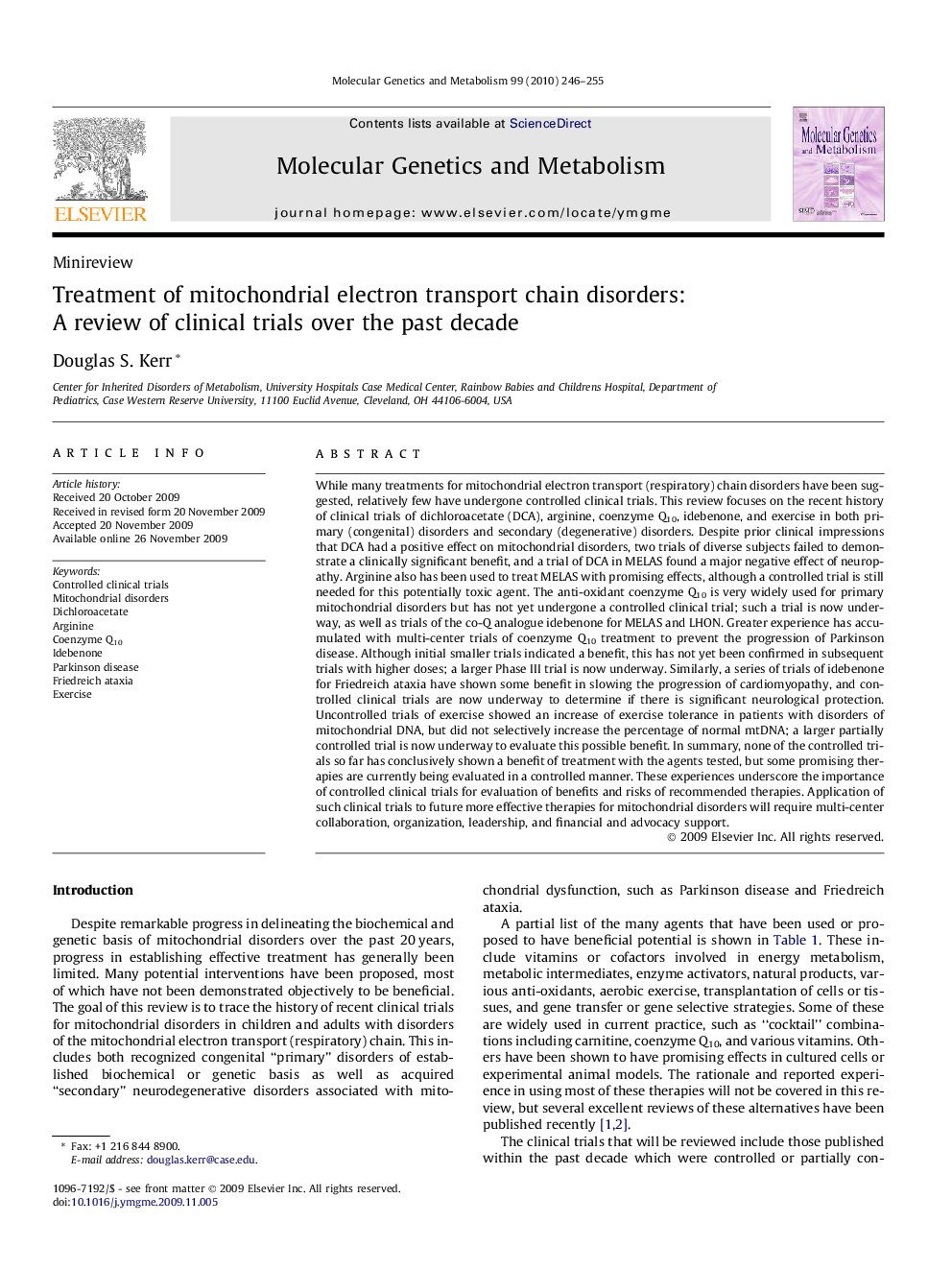| کد مقاله | کد نشریه | سال انتشار | مقاله انگلیسی | نسخه تمام متن |
|---|---|---|---|---|
| 10834145 | 1065861 | 2010 | 10 صفحه PDF | دانلود رایگان |
عنوان انگلیسی مقاله ISI
Treatment of mitochondrial electron transport chain disorders: A review of clinical trials over the past decade
دانلود مقاله + سفارش ترجمه
دانلود مقاله ISI انگلیسی
رایگان برای ایرانیان
کلمات کلیدی
موضوعات مرتبط
علوم زیستی و بیوفناوری
بیوشیمی، ژنتیک و زیست شناسی مولکولی
زیست شیمی
پیش نمایش صفحه اول مقاله

چکیده انگلیسی
While many treatments for mitochondrial electron transport (respiratory) chain disorders have been suggested, relatively few have undergone controlled clinical trials. This review focuses on the recent history of clinical trials of dichloroacetate (DCA), arginine, coenzyme Q10, idebenone, and exercise in both primary (congenital) disorders and secondary (degenerative) disorders. Despite prior clinical impressions that DCA had a positive effect on mitochondrial disorders, two trials of diverse subjects failed to demonstrate a clinically significant benefit, and a trial of DCA in MELAS found a major negative effect of neuropathy. Arginine also has been used to treat MELAS with promising effects, although a controlled trial is still needed for this potentially toxic agent. The anti-oxidant coenzyme Q10 is very widely used for primary mitochondrial disorders but has not yet undergone a controlled clinical trial; such a trial is now underway, as well as trials of the co-Q analogue idebenone for MELAS and LHON. Greater experience has accumulated with multi-center trials of coenzyme Q10 treatment to prevent the progression of Parkinson disease. Although initial smaller trials indicated a benefit, this has not yet been confirmed in subsequent trials with higher doses; a larger Phase III trial is now underway. Similarly, a series of trials of idebenone for Friedreich ataxia have shown some benefit in slowing the progression of cardiomyopathy, and controlled clinical trials are now underway to determine if there is significant neurological protection. Uncontrolled trials of exercise showed an increase of exercise tolerance in patients with disorders of mitochondrial DNA, but did not selectively increase the percentage of normal mtDNA; a larger partially controlled trial is now underway to evaluate this possible benefit. In summary, none of the controlled trials so far has conclusively shown a benefit of treatment with the agents tested, but some promising therapies are currently being evaluated in a controlled manner. These experiences underscore the importance of controlled clinical trials for evaluation of benefits and risks of recommended therapies. Application of such clinical trials to future more effective therapies for mitochondrial disorders will require multi-center collaboration, organization, leadership, and financial and advocacy support.
ناشر
Database: Elsevier - ScienceDirect (ساینس دایرکت)
Journal: Molecular Genetics and Metabolism - Volume 99, Issue 3, March 2010, Pages 246-255
Journal: Molecular Genetics and Metabolism - Volume 99, Issue 3, March 2010, Pages 246-255
نویسندگان
Douglas S. Kerr,